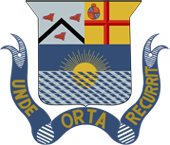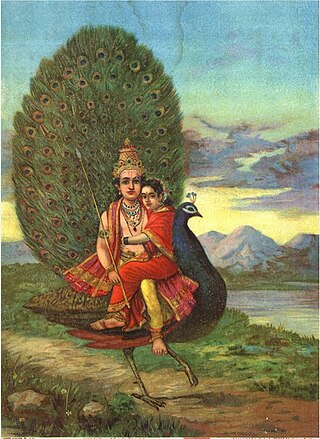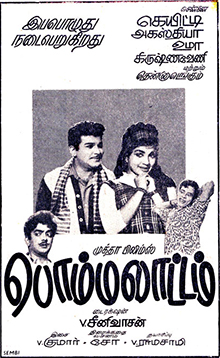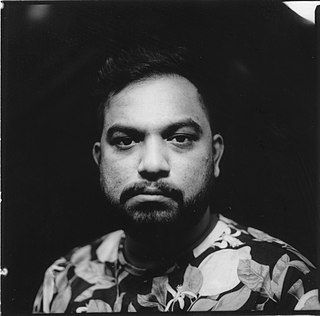Related Research Articles

Presidency College is an art, commerce, and science college in the city of Chennai in Tamil Nadu, India. On 16 October 1840, this school was established as the Madras Preparatory School before being repurposed as a high school, and then a graduate college. The Presidency College is one of the oldest government arts colleges in India. It is one of two Presidency Colleges established by the British in India, the other being the Presidency College, Kolkata.

Music of Tamil Nadu has a long tradition and history going back thousands of years. Music is a very important aspect of marriage and temple festival Tamil people.

Chennai Music Season is an event hosted every Mid November–January in Chennai Tamil Nadu. Spanning some 9 weeks, it comprises top-flight professional and amateur musicians. The traditional role of the Music Season is to allow aficionados of Carnatic music to appreciate performances by renowned artists, and to allow promising young artists to display their talent and skill. Audiences and artists come from across India and her diaspora to enjoy the season.

The culture of Chennai, popularly called the "Gateway to the South India", is distinct from that of any other Indian city. Being a cosmopolitan hub, the city's culture reflects its diverse population that has resulted in a unique blend. Though a modern metropolis, Chennai continues to be traditional and conventional in certain ways. Traditional music, dance and all other art forms of Tamil Nadu are very popular in the city. One can find a peculiar cultural blend in city, from traditional foods to fast foods, from ancient temple architecture to modern high-rises, and from classical music and dance to the growing nightlife.

The Kalaimamani is the highest civilian award in the state of Tamil Nadu, India. These awards are given by the Tamil Nadu Iyal Isai Nataka Mandram, a unit of the Directorate of Art and Culture, Government of Tamil Nadu, to recognise artists in the state for their achievements.

Sudha Ragunathan is an Indian Carnatic vocalist, singer and composer. She was conferred the Kalaimamani award by the Government of Tamil Nadu in 1994, Padma Shri (2004) and Padma Bhushan (2015) by the Government of India, and Sangeetha Kalanidhi by Madras Music Academy in 2013.

Kanda Shashti Kavacham or Skanda Sashti Kavasam is a Hindu devotional song composed in Tamil by Devaraya Swamigal, a student of Meenakshi Sundaram Pillai, on Murugan, the son of Shiva, in Chennimalai near Erode. It was composed in the 19th century.

Shakthisree Gopalan is an Indian vocalist, composer, songwriter and performer, famous for her collaborations with the top south-Indian music composers like A.R. Rahman. Aside from the film music, she is a regular in the independent music scene, performing with various bands over the years dabbling in Pop, R'n'B, trip-hop and jazz.

Santhosh Narayanan is an Indian composer and musician in the Tamil film industry. He also composed music and songs for some Telugu and Malayalam movies.

Bala Murugan, better known by his stage name Gana Bala is an Indian playback singer in Tamil cinema. He rose to prominence after rendering the songs 'Aadi Pona Aavani' and 'Nadukadalula Kappala' from the soundtrack of Attakathi. He has predominantly sung songs belonging to the gaana genre of Tamil Nadu. He has been credited for reviving the gaana genre in Tamil Cinema after 'Thenisai Thendral' Deva. He has also penned lyrics for some of his songs.

Vellore G. Ramabhadran was a Mridangam artiste from Tamil Nadu, India. He was awarded the Madras Music Academy's Sangeetha Kalanidhi in 2004.

Bommalattam is 1968 Indian Tamil-language comedy film, directed by Muktha Srinivasan and produced by V. Ramaswamy. The screenplay was written by Cho Ramaswamy from a story by Madurai Thirumaran. It stars Jaishankar, Jayalalithaa, Nagesh, Major Sundarrajan, Cho Ramaswamy and Manorama. V. S. Raghavan, Sachu and O. A. K. Thevar play key roles. The film was released on 31 May 1968.

Sidharth Sriram is an Indian Carnatic musician, music producer, playback singer. He is an R&B songwriter and has been working in the Tamil, Telugu, Kannada, Malayalam, Hindi, Marathi and English music industry. He regularly collaborates with his sister Pallavi Sriram, a Bharatanatyam dancer, and music directors.

Ramakrishnan Murthy is a Carnatic Music vocalist from India. He regularly performs in the annual Madras Music Season besides being featured in music festivals world over that focus on Indian Classical music. He is an A-grade artist of the All India Radio and Doordarshan, Chennai.
The Casteless Collective is an Indian indie band based in Chennai, Tamil Nadu. The band was formed in 2017, with support from the Neelam Panpaatu Maiyam started by filmmaker Pa. Ranjith and filmmaker and film composer Tenma, founder of the label Madras Records.
Isaivani is a gaana singer from Chennai, who performs with The Casteless Collective. In 2020 she was recognised for her achievements with one of the BBC 100 Women Awards.
Kunangudi Masthan Sahib (1792-1838) was a Tamil Qadiriyya Sufi poet and composer. His songs remain popular today, especially in the Gaana music of Chennai.

Tiburtius Vinodh Rubin, better known professionally as Tenma, is an Indian music producer, singer, composer, bass guitarist, and festival director. He is most well recognized as the co-founder and leader of the indie band The Casteless Collective and the now-defunct band Kurangan. In 2019, he debuted as a music director for the Tamil film Irandam Ulagaporin Kadaisi Gundu. He is the co-founder of Madras Medai, a music festival and conference focusing on the growth of independent music in South India. He is also the founder of the Madras Indie Collective.
Arunmozhi is an Indian playback singer and well-known flutist. He has sung songs composed by leading Indian film industry music directors, including Ilaiyaraaja, Shankar Ganesh, Deva, S. A. Rajkumar, Viji Manuel, Swararaj, Harris Jayaraj, Sirpy, Vidyasagar, Soundaryan, Karthik Raja, Siva, Masa, Dhina and Yuvan Shankar Raja. He has also performed in live concerts across the world. He is a part of Ilaiyaraaja's musical troupe, playing flute. Arunmozhi is very familiar with western musical notes, and used to interpret and explain those written by Ilaiyaraaja to other musicians in the group. Introduced by Ilaiyaraaja as a playback singer, Arunmozhi has sung some very popular hit songs.
Mukesh Mohamed is an Indian playback singer. As a singer, he sings melody, folk and gana songs. He has sung more than 500 film songs in various Indian languages. He has also recorded a number of devotional albums. He has performed in numerous live concerts across the world, and has regular appearance in Ilaiyaraaja’s musical orchestras. Mukesh Mohamed has sung some songs including "Vaa Saamy" in Annatthe.
References
- ↑ "'Gaana' Ulaganathan bags 3 more film offers". The Hindu. 2 April 2006. Retrieved 23 October 2019.
- 1 2 3 4 5 6 7 8 9 10 11 12 13 14 15 16 17 18 19 20 21 22 23 24 Valan, Antony Arul (2020). "Gana (Gānā)". Keywords for India : A Conceptual Lexicon for the 21st Century. London: Bloomsbury Publishing Plc. pp. 83–84. ISBN 978-1-350-03927-8. OCLC 1134074309.
- 1 2 3 Kumari, J. Vijay Ratna (2018). "The Influence of Sufism in Gaana Songs". International Journal of Current Humanities and Social Science Researches. 2 (4): 22–26. ISSN 2456-7205.
- ↑ Saravanan, T. (20 July 2017). "Composer Deva: the monarch of Gaana music". The Hindu. Retrieved 27 March 2021.
- ↑ Ramanujam, Srinivasa (18 May 2020). "Deva interview: 'Kushi' proved that I could do more than just 'gaana'". The Hindu. Retrieved 27 March 2021.
- 1 2 3 "Association for Gaana singers in South India". The Hindu. 4 August 2016. Retrieved 27 March 2021.
- 1 2 3 4 5 6 7 Srivathsan, A. (25 August 2012). "A struggle to elevate the subaltern Chennai Gana". The Hindu. Retrieved 27 March 2021.
- ↑ Ratna Kumar J, Vijay (2016). A Culture in Transition: A Study of Gaana Singers in Chennai (PhD thesis). Manonmaniam Sundaranar University. hdl:10603/175924.
- ↑ Ramanujam, Srinivasa (8 August 2020). "Corona crooners: Tamil 'gaana' and folk performers spread COVID-19 awareness with music". The Hindu. Retrieved 28 March 2021.
- ↑ "BBC 100 Women 2020: Who is on the list this year?". BBC News. 23 November 2020. Retrieved 19 December 2020.